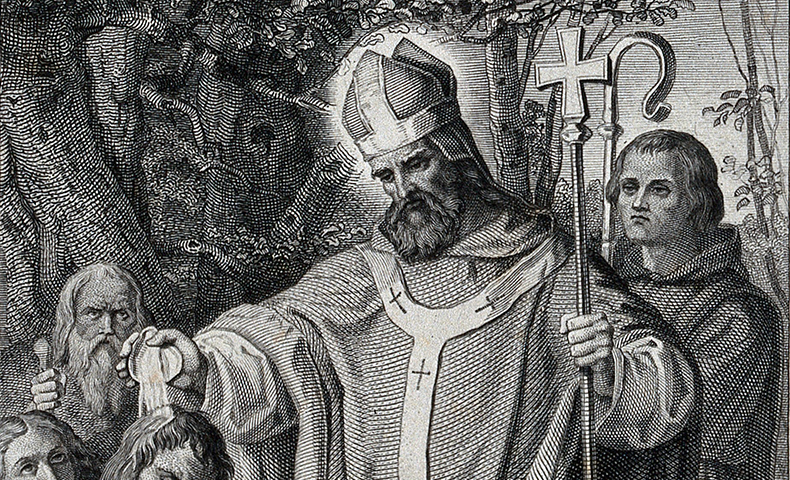San Bonifacio, Saint of the day for June 5th

(675 circa - 5 June 754)
The history of San Bonifacio
Boniface, known as the apostle of the Germans, was an English Benedictine monk who had given up being elected abbot to devote his life to the conversion of the Germanic tribes. Two characteristics stand out: his Christian orthodoxy and his fidelity to the Pope of Rome.
How absolutely necessary this orthodoxy and fidelity was was confirmed by the conditions that Boniface found on his first missionary journey in 719 at the request of Pope Gregory II. Paganism was a way of life. What Christianity found had either fallen into paganism or was mixed with error. The clergy were primarily responsible for these latter conditions as they were in many cases uneducated, relaxed and arguably obedient to their bishops. In particular cases their own orders were questionable.
These are the conditions that Boniface reported in 722 on his first return visit to Rome. The Holy Father ordered him to reform the German Church. The pope has sent letters of recommendation to religious and civil leaders. Boniface later admitted that his work would not have been successful, from a human point of view, without a sure letter of conduct from Charles Martel, the powerful Frankish ruler, grandfather of Charlemagne. Boniface was eventually appointed regional bishop and authorized to organize the entire German church. It was hugely successful.
In the Frankish kingdom, it encountered major problems due to secular interference in episcopal elections, the worldliness of the clergy and the lack of papal control.
During one last mission in the Frisians, Boniface and 53 companions were massacred while he was preparing converts for confirmation.
To restore the allegiance of the Germanic Church to Rome and convert the pagans, Boniface had been led by two princes. The first was to restore the obedience of the clergy to their bishops in union with the Pope of Rome. The second was the establishment of many houses of prayer which took the form of Benedictine monasteries. A large number of Anglo-Saxon monks and nuns followed him to the continent, where he introduced the Benedictine nuns into the active apostolate of education.
Reflection
Boniface confirms the Christian rule: following Christ is following the way of the cross. For Boniface, it was not just physical suffering or death, but the painful, thankless and bewildering task of Church reform. Missionary glory is often thought of in terms of bringing new people to Christ. It seems - but it is no - less glorious to heal the house of faith.